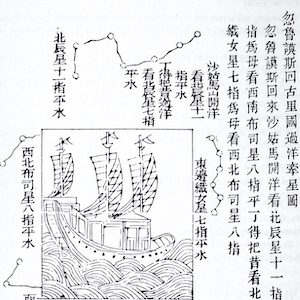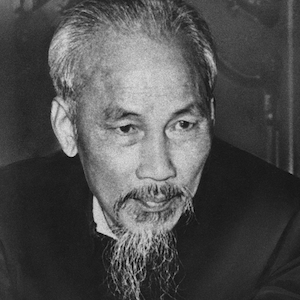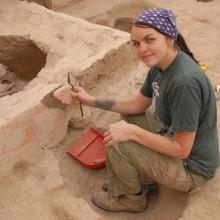Asia

The Half-Male, Half-Female Form of Shiva (Shiva Ardhanarishvara)
This sculpture is of Shiva, originally found in Kerala, southwestern India, shows the importance of religious symbols in Hinduism. Shiva is a major Hindu god who is associated with the opposing ideas of destruction and regeneration.

Navigational Charts Based on Those Used by Zheng He
These two woodblock prints are part of a map printed in a seventeenth-century military treatise, and thought to be based on the maps used by Zheng He in his voyages.
Excerpt from the Memoirs of Ma Huan
This excerpt is from the memoir of Ma Huan (1380-1460), a Chinese Muslim voyager and translator, who accompanied Admiral Zheng He on three of his seven voyages.
Excerpt from Ibn Battuta's Travels in Asia and Africa 1325-1354
This source comes from the travel book of Ibn Battuta (1304-1369), a Moroccan Berber scholar and explorer.
Long Teaching Module: Trade and Religion in the Indian Ocean Network, 1100-1500
Global trade is a central aspect of the contemporary world, but trade was also important in pre-modern eras.

Global Architectural History Teaching Collaborative
Perhaps most interesting and relevant for world history teachers and students are the modules that make connections across space and time.
The Vietnam War: 1945 – 1975
Included on the site is a curriculum guide - a 180-page PDF that can be viewed on the site or downloaded. The that includes four distinct units divided chronologically (1945-1975) and further divided into eight clusters.
Analyzing Material Objects
The modules in Methods present case studies that demonstrate how scholars interpret different kinds of historical evidence in world history. This module developed by historian Daniel Waugh explores how historians interpret material objects to better understand the past.

Gold dinar depicting Caliph Abd al-Malik
Coins are objects that can help historians see change over time. This Dinar coined in 695 likely depicts Abd al-Malik ibn the caliph or leader of the Umayyad Caliphate. Several aspects of the coin make it an interesting object for study.

Gold Solidus of Justinian I (527–65)
Coins like this one from the Byzantine Empire can reveal a great deal. Coins found in a well can tell historians and archeologists the range of dates people settled in a given area. Coins can also help date other artifacts that researchers find near the coins.